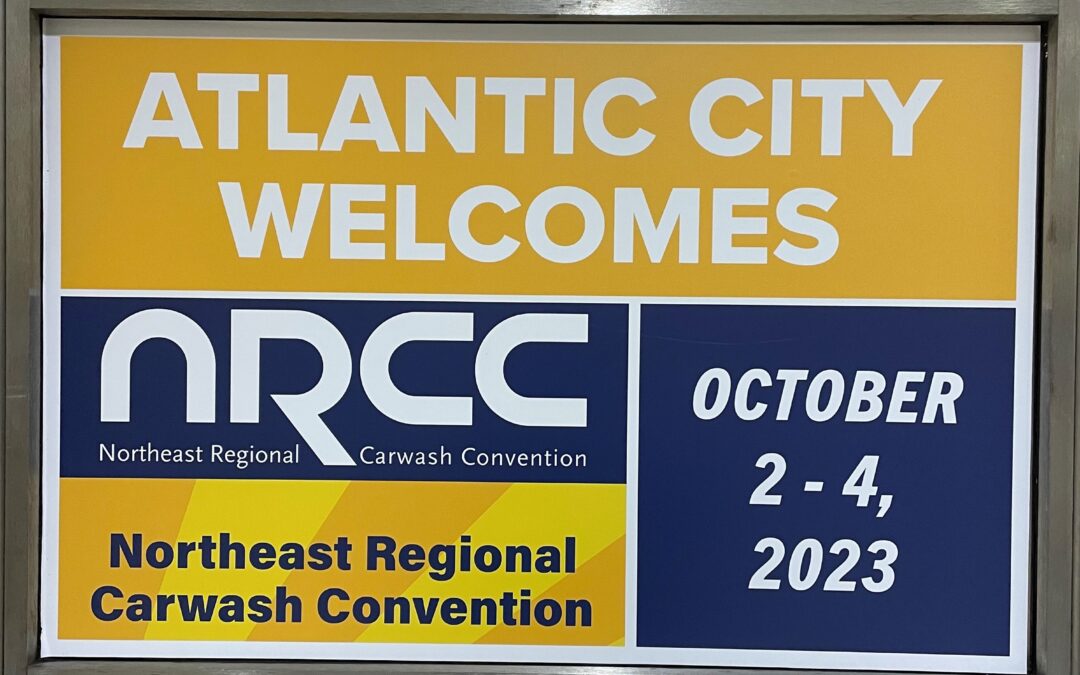After the Northeast Regional Carwash Conference in Atlantic City, we were left to reflect on some of the event’s learnings and admire how relatable car wash best practices are to every area of—everything. While the car wash industry is experiencing a transformative period with innovations focused on sustainability, efficiency, and convenience, relationships are still a prominent focus. Whether providing an eco-friendly cleaning agent, or brokering the sale of car wash properties, the professionals we met seemed to tote this philosophy and prioritize changing demands of the traditional car wash we once knew.
Belts, Facelifts and Pay Stations
Many operators are now turning to the “Express” model over full service in response to the needs of the market and difficulty to find labor. Today, the business model is centered on the customer doing it all (belt conveyors for a simple drive on, and vacuums for self-use following a wash). An operator pointed out that traditional carwash conveyors used to be his go-to. In 2023, only 1 percent of cars sold will have a stick shift. In 2014, 7 percent had them. As with any component of a car wash’s equipment, the devil is in the details of the install. Often belt conveyors have caught a bad rap from their price but many believe the quality is there.
The auto pay stations are far more complex than the kiosks at Walmart or other stores. With an objective to make things as simple as possible in a quick timeframe, there is often a need for a guide person nearby.
Smart Tech
Car wash owners are incorporating advanced technologies to enhance user experience and streamline operations. This includes the integration of automated payment systems, customer loyalty programs with CRMs exclusively for car washes, and real-time monitoring of equipment performance. Smart technology ensures that car wash facilities are not only efficient but also user-friendly in an increasingly digitized world.
Innovative Architectural Designs
These facilities are no longer just functional spaces; they are becoming architectural landmarks. Innovative designs that blend aesthetics with functionality are gaining popularity. The use of glass walls, energy-efficient lighting designs, and landscaping elements contribute to creating visually appealing and customer-friendly car wash spaces. The goal is to provide not only a clean car but also a pleasing and memorable experience for customers.
Advanced Water Management Systems
Given global concerns about water scarcity, car wash construction in 2023 is prioritizing advanced water management systems. These systems include rainwater harvesting, water recycling, and water treatment technologies. Car wash facilities are designed to minimize water wastage, with sophisticated filtration systems ensuring that water used in the cleaning process is recycled and reused, contributing to both environmental conservation and cost-effectiveness.
From green building practices to the integration of smart technologies, the industry is evolving to meet the demands of a changing world. As car wash facilities become more environmentally friendly, efficient, and aesthetically pleasing, they are poised to redefine the standards of automotive care infrastructure.

